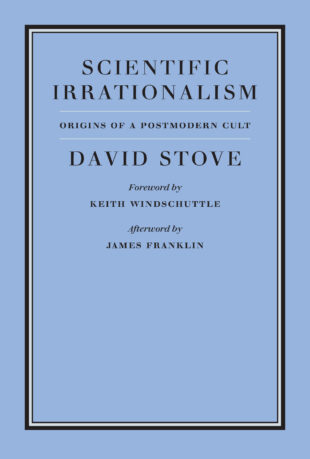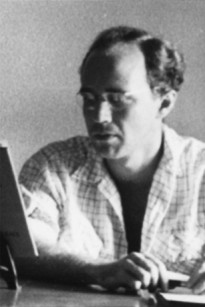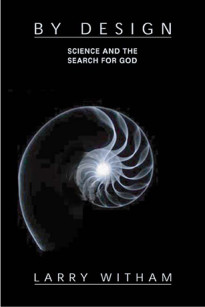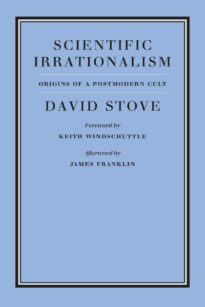In fewer than two-hundred pages, David Stove leaves the well-established and widely regarded edifice of the academic philosophy of science in smoldering ruins.
This book provides a modern history of scientific reasoning, from David Hume’s inductive skepticism to Karl Popper’s outright denial of induction, to the increasingly irrational and absurd scientific views that followed. When Popper untethered science from induction, Stove argues, he triggered a postmodernist nightmare of utter nonsense culminating in Paul Feyerabend’s summation that “anything goes” when it comes to defining or describing science.
With undeniable logic, a deft analysis of the linguistic slight-of-hand that make absurd arguments seem reasonable, and regular displays of wit, Stove gives the reader a front row seat to one of the greatest unforced errors in the history of modern thought.
Stove’s views are entirely consistent with the origins of scientific inference and logic, as well as modern advances in probability theory, and yet he remains largely unnoticed by most of the academic world. From Stove’s insider-outsider perspective, the train wreck that is academically accepted philosophy of science and “science studies” is a fascinating and thoroughly entertaining subject of study.
Scientific Irrationalism is the perfect place to begin any examination of what science is—and what it is not.








